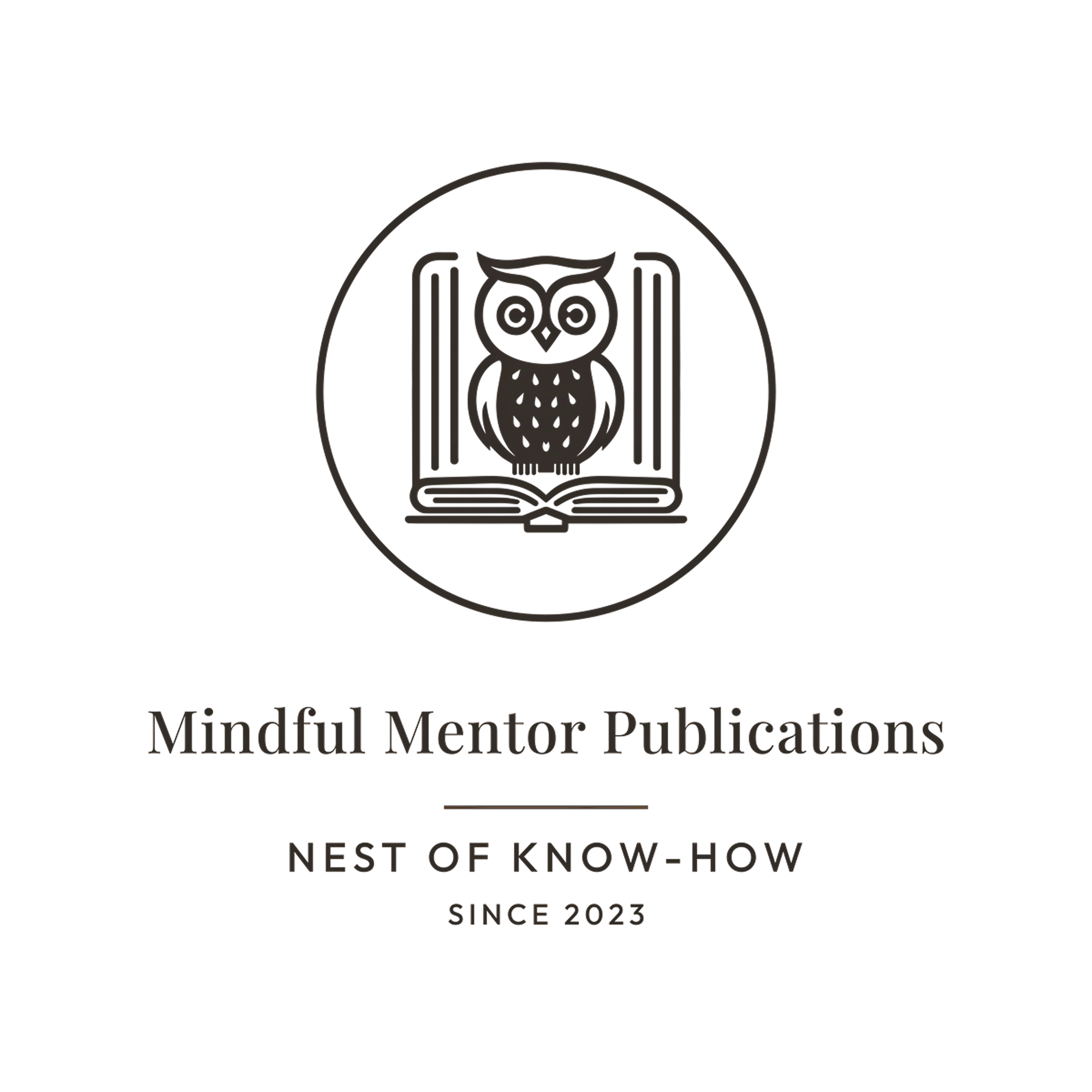Have you ever thought about how a simple pen and paper could open up your inner world? Journaling prompts are your gateway to self-discovery and personal growth. They guide you through the complex maze of your thoughts and feelings. From Leonardo da Vinci’s sketchbooks to Frida Kahlo’s diaries, journaling has been a trusted tool for visionaries and creators.
Today, we’re exploring the powerful impact of daily journaling on self-reflection. If you want to change negative thoughts, live more in line with your values, or find clarity in your life, these prompts are here to help. They are your stepping stones to a more self-aware you.

Are you ready to start a journey of self-improvement? Let’s see how these thoughtfully designed prompts can spark your personal growth. They will lead you to deep insights about yourself and your role in the world.
Key Takeaways
- Journaling prompts facilitate self-discovery and personal growth
- Daily practice of self-reflection can transform your mindset
- Journal writing aids in aligning actions with personal values
- Mindful journaling enhances self-awareness and emotional intelligence
- Regular journaling can improve sleep and boost the immune system
- Gratitude-focused prompts may help reduce symptoms of depression
The Power of Journaling for Self-Discovery and Growth
Journaling is a powerful tool for personal growth and self-awareness. It has helped many people explore their inner selves and grow. Let’s dive into the history and benefits of journaling in our lives.
Historical Significance of Journaling
Journaling has been key to reflection and growth throughout history. Famous figures like Anne Frank kept diaries that left a lasting impact. Today, it remains crucial for self-discovery and healing.
Benefits of Using Journal Prompts
Journal prompts spark deep thought and insight. They help you see parts of your life you might miss. Here are some key advantages:
- Enhanced self-awareness
- Improved problem-solving skills
- Stress reduction
- Increased creativity
- Better emotional regulation
How Journaling Aids Personal Development
Regular journaling boosts your personal growth. It’s a safe space for expressing yourself and tracking progress. By journaling for spiritual growth, you gain clarity on your goals and values. This leads to meaningful growth and a deeper understanding of yourself.
| Journaling Aspect | Impact on Personal Growth |
|---|---|
| Daily Reflections | Increased self-awareness |
| Goal Setting | Improved focus and motivation |
| Gratitude Journaling | Enhanced positivity and well-being |
| Emotional Processing | Better emotional regulation |
Embrace journaling’s transformative power. Start your self-discovery journey today. Watch as your personal growth unfolds in your journal.
How to Establish a Journaling Routine
Starting a journaling habit can change your life. To begin, set up a writing routine that fits you. Let’s look at how to make journaling a lasting part of your life.
Choosing your journaling medium
Choose what feels right for you. Whether it’s writing with a pen or using a digital app, your choice affects your writing.
| Medium | Pros | Cons |
|---|---|---|
| Paper Journal | Tactile experience, no distractions | Less portable, can’t search entries |
| Digital App | Easy to organize, searchable | Potential tech issues, screen fatigue |
| Voice Recording | Quick, hands-free | Harder to review, less private |
Creating a conducive environment
Find a quiet spot for journaling. A special area helps signal it’s time to write. This makes it easier to start your journaling.
Setting realistic goals and expectations
Start with a little time each day. Then, slowly add more. Use prompts to help you write and stay inspired. Remember, it’s about making progress, not being perfect.
- Set a daily writing goal (e.g., 5 minutes)
- Choose from 50+ journal prompts for variety
- Focus on self-reflection and personal growth
- Don’t worry about grammar or punctuation
By following these steps, you’ll start a rewarding journaling habit. Remember, being consistent is key. It helps you grow and discover yourself.
Prompts for Reflection and Learning
Journaling questions are great for self-reflection and personal growth. They let you explore your thoughts, feelings, and experiences deeply. This leads to deeper thinking and valuable learning.
- What childhood memory stands out most vividly, and why?
- If you could give advice to your 18-year-old self, what would it be?
- How have your goals changed over the years?
- What’s the biggest challenge you’ve overcome, and what did you learn from it?
- What accomplishment are you most proud of, and why?
These questions make you think deeply and understand your growth. By using these prompts often, you can make self-reflection a habit. This leads to ongoing improvement and better self-awareness.
For teachers, reflection prompts focused on teaching experiences are very helpful. They help you get better at your job and improve student learning. Think about times when students were most into learning, where they got better, and where they found it hard.
| Reflection Area | Sample Prompt | Potential Benefit |
|---|---|---|
| Personal Growth | What’s the biggest lesson I’ve learned this year? | Identifies areas of personal development |
| Teaching Practice | How did my classroom organization impact learning? | Improves teaching effectiveness |
| Student Engagement | When were students most engaged in learning? | Enhances student participation strategies |
Remember, journaling works best with regular practice and honest self-examination. By setting aside time for reflection, you unlock deep insights and keep growing.
Prompts for Self-Awareness
Journaling is a great way to grow self-awareness and emotional smarts. By writing down your thoughts and feelings, you can learn a lot about your strengths and values. Here are some prompts to help you discover more about yourself.
Identifying Current Challenges and Strengths
Start by thinking about your current situation. What problems are you facing? What skills have helped you beat past hurdles? Use these prompts to explore:
- List three challenges you’re currently facing and three strengths you can use to address them.
- Describe a recent success and the personal qualities that contributed to it.
- What skills do you want to develop further? How can you work on them?
Exploring Emotions and Thought Patterns
Understanding your feelings is crucial for self-awareness. Try these prompts to dive deeper:
- Write about a time when you felt truly happy. What led to that feeling?
- Describe a recent conflict. How did you handle your emotions?
- What recurring thoughts do you notice throughout your day?

Recognizing Personal Values and Beliefs
Your core values guide your decisions and actions. Use these prompts to figure them out:
- List five values that are most important to you. How do they guide your choices?
- Describe a situation where you stood up for your beliefs. How did it make you feel?
- What legacy do you want to leave behind? How does this align with your values?
| Aspect | Benefit | Related Prompt |
|---|---|---|
| Self-awareness | Better decision-making | What patterns do I notice in my choices? |
| Emotional intelligence | Improved relationships | How do I typically respond to stress? |
| Personal strengths | Increased confidence | What compliments do I often receive? |
| Core values | Clearer life direction | What principles guide my actions? |
| Mindfulness | Reduced stress | What am I grateful for right now? |
Prompts for Goal Setting and Dreams
Journaling is a great way to plan for the future and reach your goals. With specific prompts, you can make your life vision clear and set achievable goals. Let’s look at some journaling prompts to help shape your dream life.
Begin by thinking about your life 15-20 years ahead. Write about your perfect day, in detail. What does success and happiness mean to you? This helps you match your current actions with your future goals.
Then, break your goals into smaller steps. List your main goals for this year, the next 5 years, and the next 10 years. This makes your dream life seem reachable and guides your planning.
Identify what might stop you from reaching your goals or living your dream life. What’s holding you back? Look into your doubts and where they come from. Knowing these obstacles is key to getting past them.
| Time Frame | Goal Setting Focus | Benefits |
|---|---|---|
| 1 Year | Short-term objectives | Builds momentum and confidence |
| 5 Years | Medium-term aspirations | Provides direction and motivation |
| 10 Years | Long-term life vision | Shapes overall life trajectory |
Remember, 62% of people find setting new goals each month helps them stay focused and intentional. By using these prompts regularly, you’re like the 92% who say journaling has improved their focus and direction in life.
Journaling Prompts for Teacher Personal Growth
Journaling is a great way for teachers to grow personally. It’s a space for deep reflection and helps balance work and personal life. Let’s look at some prompts to start your journaling.
Reflecting on Teaching Experiences
Begin by setting aside 5-10 minutes each day for mindfulness journaling after work. This helps you think about your teaching and find areas to improve. Here are some prompts to consider:
- What was your most challenging moment today?
- How did you overcome a difficult situation in class?
- What teaching strategy worked well today?
Exploring Professional Development Opportunities
Take time each month to reflect on your journal entries. Spend 30-45 minutes looking back and ask yourself:
- What skills do I need to improve?
- Which areas of teaching excite me most?
- What professional development opportunities align with my goals?
Balancing Personal and Professional Life
Work-life balance is key to avoiding burnout. Use these prompts to think about your life and work:
- How am I prioritizing self-care?
- What activities outside of teaching bring me joy?
- How can I set better boundaries between work and personal time?
Remember, regular journaling can make you perform better and feel more satisfied in your work and personal life. By reflecting on your experiences, you’re taking charge of your growth as a teacher.
Prompts for Problem-Solving and Resilience
Journaling can be a powerful tool for solving problems and building resilience. By thinking about past challenges, you can get better at coping and growing personally. Let’s look at some prompts to help you get past obstacles and build resilience.
Start by thinking about a recent challenge you faced. Write about how you tackled it. This helps you see your problem-solving skills and what you can improve on. Then, think about a current obstacle in your life. Come up with possible solutions, even if they seem unusual.
To build resilience, remember a time when you got back up after failing. What kept you going? Use this to make a list of personal ways to cope with challenges in the future. Remember, getting better at resilience takes practice.
| Problem-Solving Prompt | Resilience-Building Prompt |
|---|---|
| Describe a challenge you overcame recently. | List three things that help you stay positive during tough times. |
| Brainstorm solutions for a current problem. | Write about a time you learned from failure. |
| Identify your go-to problem-solving method. | Describe how you’ve grown from past adversities. |
By using these prompts often, you’ll get better at solving problems and building resilience. This helps with your personal growth and gives you useful tools for dealing with life’s challenges.
Cultivating Gratitude and Positivity Through Journaling
Journaling is a powerful tool for personal growth. It can boost your well-being and help you think more positively. Let’s see how this simple practice can change your life.
The Impact of Gratitude on Well-being
Studies show that a gratitude journal can make you happier, help you sleep better, and improve your relationships. Focusing on what you’re thankful for can lower stress and build resilience. This practice changes how you see things, making you more satisfied with life.

Techniques for Incorporating Gratitude in Journaling
Here are some ways to start your gratitude journal:
- Write down three things you’re grateful for each day
- Think about positive experiences you’ve had
- Thank people who have made a difference in your life
- Enjoy nature and the small joys
Journaling regularly can change your brain to focus more on the good things in life. This is important for building a gratitude mindset. It leads to more happiness and being more productive.
Using Positive Affirmations in Your Journal
Adding affirmations to your journal can make you feel better and boost your self-esteem. Here are some positive affirmations for different areas of life:
| Area | Affirmation |
|---|---|
| Self-love | I am worthy of love and respect |
| Career | I am capable of achieving my goals |
| Relationships | I attract positive and supportive people |
| Health | My body is strong and healthy |
By mixing gratitude journaling with positive affirmations, you create a strong tool for personal growth and emotional well-being. This can help you stay positive, even when things are tough.
Using Your Journal for Personal Growth Measurement
Your journal is a key tool for tracking your personal growth and self-improvement. It helps you measure your progress and reach your goals. Studies show that journaling makes learning better and helps develop skills for life.
Begin by setting clear, measurable goals in your journal. Write what you aim to achieve and break it into smaller steps. Check your entries often to see how your thoughts, feelings, and actions have changed over time.
To get the most from journaling for tracking progress:
- Use writing prompts to explore different parts of your life
- Think about your current challenges and strengths
- Keep track of your wins and what you need to work on
- Set achievable goals for personal growth
- Practice self-reflection to uncover deeper insights
A study looked at 1,312 reflective journal entries and found a strong link between using reflective skills and future career growth. This shows how important it is to keep journaling for ongoing personal and professional growth.
Your journal is a safe place for self-discovery. Use it to explore new ideas, boost creativity, and think about your journey. By regularly tracking your progress, you’ll stay motivated and on track with your self-improvement goals.
Embracing the Journey of Self-Discovery Through Journaling
Starting a personal growth journey with journaling is a powerful step. Just 5-10 minutes a day can unlock your true potential. Your journal becomes a guide, helping you navigate through your thoughts and feelings.
Journaling offers over 30 prompts to spark your inner thoughts. These prompts cover many life areas, from accepting yourself to chasing your dreams. They help you understand yourself better and your role in the world.
Lifelong learning is key to personal growth. Your journal is more than a place for thoughts; it’s a tool for change. Writing can reveal hidden strengths, challenge beliefs, and show your growth. This journey of self-discovery is continuous, bringing you closer to who you truly are.
To make journaling more fun, try using colorful pens or adding art. These can make your journaling sessions more creative and enjoyable. Many places now value self-care and personal growth, offering time for reflection. By journaling, you’re investing in yourself and maybe inspiring others too.
FAQ
What is the historical significance of journaling?
Journaling has a long history. Famous people like Leonardo da Vinci and Frida Kahlo used it for self-reflection. Mark Twain, Anne Frank, and Marcus Aurelius also found value in it for personal growth.
What are the benefits of using journal prompts?
Journal prompts help change negative thoughts into positive ones. They help align actions with goals and values. They also reduce stress, boost creativity, and improve problem-solving skills.
How can journaling aid personal development?
Journaling tracks your personal growth. It shows positive changes and areas to improve. It’s a safe space for self-expression and can be therapeutic.
How do I choose a journaling medium?
Pick a medium that feels right, like paper or a digital app. Find a quiet spot for focused reflection.
How do I establish a journaling routine?
Start with a few minutes of writing each day and add more time as you go. Use prompts to get past writer’s block. Just let your thoughts flow without worrying about grammar.
What types of prompts can aid self-reflection and learning?
Try prompts about favorite childhood memories or lessons from important adults. Think about what you’d tell your younger self or your biggest achievements and regrets.
How can journaling prompts promote self-awareness?
These prompts help you see your strengths and weaknesses. They show what stresses you and what brings you joy. They help you understand your values and daily habits.
What prompts can assist with goal setting and envisioning the future?
For setting goals, think about your dream life and what makes you happy. Set goals for now and in the future. Identify what stops you from reaching your goals.
How can journaling benefit teachers’ personal growth?
Journaling helps teachers reflect on their teaching and grow professionally. It helps them find new strategies and balance their work and life. It’s a way to learn and improve.
How can journaling prompts aid problem-solving and resilience?
These prompts help you think about past challenges and how you overcame them. They encourage brainstorming and exploring ways to cope with tough times.
How can journaling cultivate gratitude and positivity?
Gratitude journaling boosts your well-being. Write down daily things you’re thankful for. Reflect on positive experiences and people in your life. Use positive affirmations to stay upbeat.
How can I use my journal to measure personal growth?
Review past journal entries to see how you’ve grown. Set clear goals and track your progress. Celebrate your wins and think about what you need to work on.
How can I embrace the journey of self-discovery through journaling?
See journaling as a journey of self-discovery. Explore new aspects of yourself and challenge your beliefs. Reflect on how journaling has changed you for the better.





